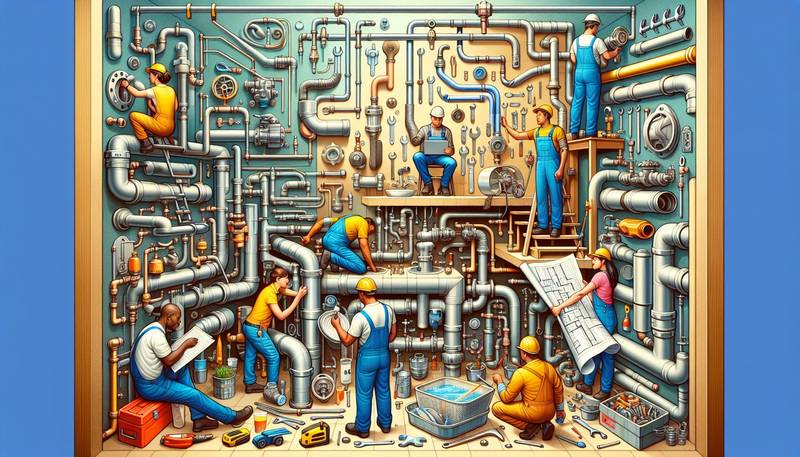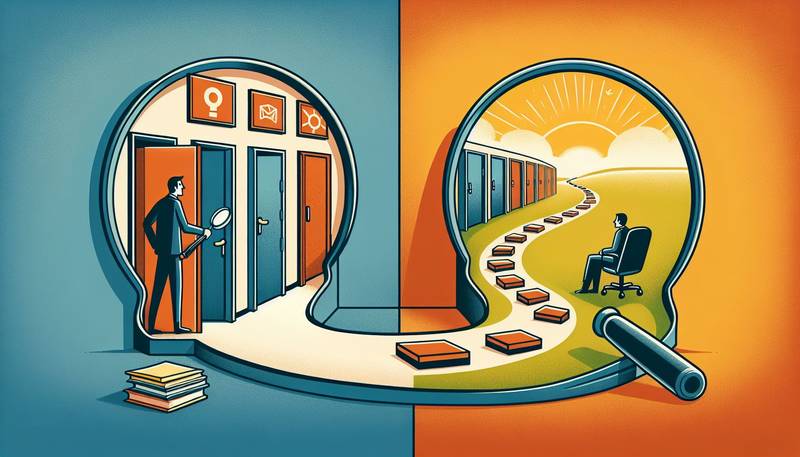Plumbing the Depths: A Look into the World of Plumbing Careers
While it may not be the most glamorous profession, plumbing offers a stable and rewarding career path for those willing to roll up their sleeves and get their hands dirty.
The Basics of Plumbing
At its core, plumbing involves the installation, maintenance, and repair of pipes, fixtures, and appliances that are used to carry water, gas, and sewage in buildings. Plumbers work with a variety of materials, such as copper, PVC, and steel, to create systems that provide clean water for drinking, cooking, and sanitation. They also ensure that wastewater is safely removed and disposed of, preventing contamination and environmental damage.
Training and Education
Becoming a plumber typically requires a combination of formal education and on-the-job training. Many plumbers start their careers as apprentices, learning the trade from experienced professionals while earning a modest wage. Apprenticeships can last anywhere from 2 to 5 years and cover topics such as blueprint reading, pipefitting, and safety regulations. Some individuals choose to attend trade schools or community colleges to receive formal training in plumbing before seeking apprenticeship opportunities.
Skills and Qualities
Plumbers need to possess a range of skills to succeed in their field. They must have strong problem-solving abilities to diagnose and fix issues in plumbing systems. Good communication skills are also important, as plumbers often work closely with customers to explain the scope of work and provide cost estimates. Physical strength and dexterity are essential for tasks that require lifting heavy materials or working in tight spaces. Additionally, plumbers must be detail-oriented and able to follow technical drawings and specifications accurately.
Job Outlook and Salary
The demand for plumbers is expected to remain strong in the coming years, driven by population growth, new construction projects, and the need to upgrade aging infrastructure. The Bureau of Labor Statistics projects a 4%!g(MISSING)rowth in employment for plumbers and pipefitters from 2019 to 2029, with opportunities in both residential and commercial settings. The median annual wage for plumbers was $55,160 in May 2019, with the highest 10%!e(MISSING)arning more than $97,170.
Specializations and Career Paths
Plumbers can choose to specialize in certain areas of the trade, such as residential, commercial, or industrial plumbing. Residential plumbers work primarily in homes and apartment buildings, installing and repairing toilets, sinks, and water heaters. Commercial plumbers focus on larger projects, such as hotels, office buildings, and shopping centers, where complex systems are required. Industrial plumbers work in manufacturing facilities, power plants, and other industrial settings, often dealing with high-pressure systems and specialized equipment.
Conclusion
In conclusion, plumbing is a valuable and essential profession that offers a rewarding career for those willing to put in the hard work and commitment required. With a growing demand for skilled tradespeople and opportunities for specialization in various sectors, plumbers have the chance to build a stable and lucrative career that makes a real difference in the community. If you enjoy working with your hands, solving practical problems, and taking on new challenges every day, a career in plumbing could be the perfect fit for you.











